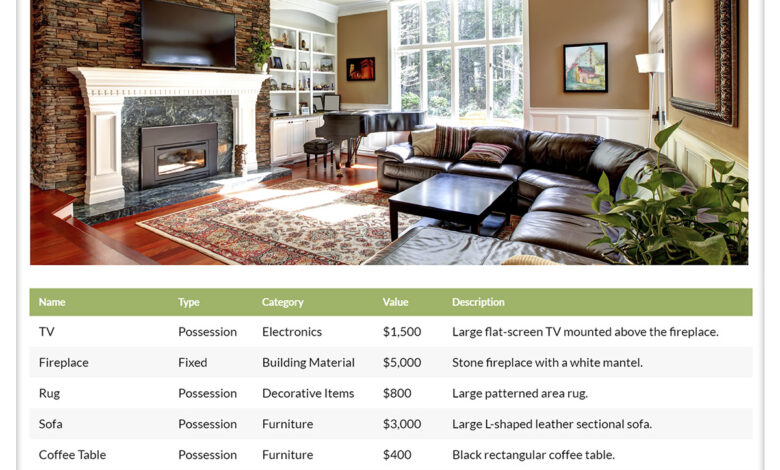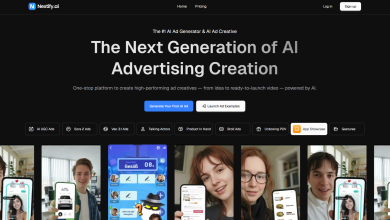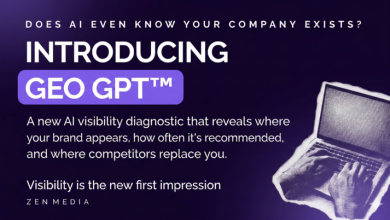
Residential real estate is the largest financial asset class in the US that is valued at over $52 Trillion that serves over 120 million consumers. Homeowners are also the targeted audience for multiple billion-dollar markets that serve them with financial and physical products and services. These verticals include mortgage lending, home insurance, real estate brokerage, and home improvement products and services.
A personalized AI platform that provides data and insights specific to each homeowner is a massive opportunity to empower consumers to save money and improve the value of their largest asset and biggest expense. But it is also a tremendous opportunity for companies that serve homeowners to dramatically transform their customer engagement to being personalized and value added. This improves renewals, retention, cross selling, and greater wallet share that grows revenues.
What is Homeowner AI?
Every homeowner suffers financial pain such as unexpected repairs, over budget on remodels, reimbursement risk with insurance claims, and lack of visibility into total cost to own and manage their home. Consumer data about this asset is scattered in paper, multiple spreadsheets, cloud storage, and localized phones and computers.
Digital home management is the single all-in-one app that manages all the data about the home in one place. It empowers homeowners to create a home inventory for insurance purposes. It goes further by providing a personalized preventative maintenance schedule for their home. It manages budget and cost for all their remodel projects.
Home management also tracks current market value, mortgage balance, home equity and all home related expenses.
Integrating generative AI technology within a digital home management platform is what delivers “Personalized AI for Every Homeowner.” Consider how many questions each homeowner has about how to manage, maintain, protect, improve and ultimately sell their home? There is no single trusted advisor to the consumer, so millions of generic web searches and hundreds of calls to various service providers attempts to fill the void.
How Does Homeowner AI Work
One of the keys to having personalized Homeowner AI for each homeowner is having a Retrieval Augmentation Generation (RAG) system. This is made possible by having consumers sign up for a private digital home management account where they can enter the address of their home. This gets data about not only the geolocation, but also the age, size, features and current market value of the home. Therefore, any subsequent Homeowner AI interaction the consumer takes includes this augmented data to the questions about their home, thus personalized response.
But it goes beyond this. Homeowner AI that is multi modal based on homeowner’s photos takes this to another level. Photo recognition AI can process photos of an entire room to detect the objects, categorize them, estimate the value and provide a description. This is extremely valuable for a home inventory for insurance claims purposes. Individual close-up photos of a home’s materials, equipment and appliances detect the brand, model serial and finds all the owner manuals, warranties, and maintenance. This helps reduce energy costs and avoid expensive repair costs.
Homeowner AI is also focused on the massive home improvement industry. Digital home management apps provide templates for every interior and exterior remodel project that provides a detailed material list for the homeowner. The personalized AI then budgets for each item based on the augmented data include size, age and location of the home along with the specifics of each project. The AI even does research on materials choices and does product search, based on brands, price ranges, and features across multiple sites. This prepares every homeowner to stay on budget, save money and have a better relationship with their contractor.
Homeowner AI Provides Personalize Financial Insights
Homeowners need to manage their home as a financial asset, but also a physical asset that is at risk of fire and water damage and a host of natural disasters. Homeowner AI provides a weather and insurance assessment based on location, so new homeowners understand the severity of risks their home faces. It even integrates with the National Weather Service for severe weather alerts that Homeowner AI processes to provide actions the homeowner can take based on the weather event and the specific home to protect and minimize damage.
On the financial side, Homeowner AI provides updates on the current market value and home equity. It also provides a 3-year forecast on how market values and equity may grow. Homeowners also get an investment analysis with a single click on the ROI based on selling the home at the current market value as well as calculating cash at closing and the tax basis on the home.
Future insights may be the most valuable for homeowners. Homeowner AI is personalized by providing an instant remaining life of your roof, HVAC, and other equipment and materials. The AI produces a replacement budget for each item and the future forecasted year for the replacement. This gives homeowners unprecedented instant analysis on whether to stay and invest in the home or to sell it.
Value of Homeowner AI to Financial Services Companies
Mortgage and home insurance companies spend massive money on lead generation to fill the top of the funnel to secure a mortgage or insurance policy. But homeowners often switch insurance companies and get refinances or home equity loans from competitors. This is due to poor customer engagement in not cultivating long term and loyal relationships. Financial services companies can provide personalized AI to each client that supercharges customer engagement solving these issues.
Insurance companies have even more incentive in reducing claims costs with better loss prevention strategies where 44% of homes face extreme damage threats. Homeowner AI proactively informs each homeowner on preventative maintenance tasks to reduce water and fire damage as well as protection strategies to minimize loss due to natural disasters. Insurance companies also benefit from Homeowner AI that creates data about the dwelling and personal property which is a new set of data that can be used in underwriting and claims management.
Real Estate Benefits of Homeowner AI
On average, there are about 4.5 to 5 million homes that are sold every year. This is a small percentage of the total home inventory of 120 million homes. The entire chain of agents, brokerages, franchise brands and real estate listing sites are focused on the small inventory of homes being sold every year. Providing Homeowner AI to their current clients differentiates their services in the long run and can build brand preference as every homeowner is a potential seller in the future.
The industry consistently faces negative feedback from consumers who perceive many agents and companies as only interested in the sale and their commission. As we can see above, Homeowner AI is valuable to homeowner during the continuous journey of the homeowner lifecycle which includes buying, owning, and selling a home multiple times. Homeowner AI can elevate the industry to be a “trusted advisor” in helping consumers manage and maintain their home.
Home Improvement Vertical is Ripe for Homeowner AI
The home improvement market is over $600 billion per year according to the Joint Center for Housing Studies. Home improvement retailers, thousands of product brands, contractors and home service providers spend billions finding new leads. Home Improvement AI offers a transformative opportunity for the industry by providing personalized, data-driven insights for homeowners.
With features like material-specific budgeting, product education, ROI analysis, and long-term planning, it moves beyond generic advice to deliver tailored solutions for each home. For retailers, this translates to better-qualified leads and more informed customers ready to purchase. Contractors benefit from shorter sales cycles and aligned expectations, allowing them to focus on execution rather than education. This technology streamlines the process, improving customer satisfaction and driving higher conversions, making it a critical tool for staying competitive in a tech-driven market.
Homeowner AI Conclusions
There is no doubt that homeowners and all the various markets that service them in the homeowner lifecycle represent trillions of dollars spent. Yet every homeowner struggles to manage this financial and physical asset. This is where digital home management apps come into play along with generative AI.
AI that is personalized for each homeowner transforms multiple markets because data and insights must be specific to each home because of the variance in location, age, size, value, and weather patterns. Various financial analysts have forecasted that “Vertical AI” is a decade long opportunity in the billions. Homeowner AI is an innovative evolution of generative AI technology that is personalized for not only individual homeowners, but a tremendous opportunity for every large company that provides products and services to homeowner clients.





